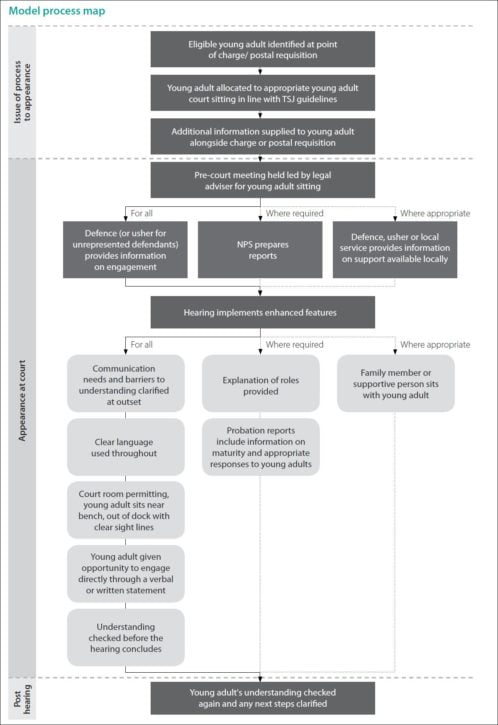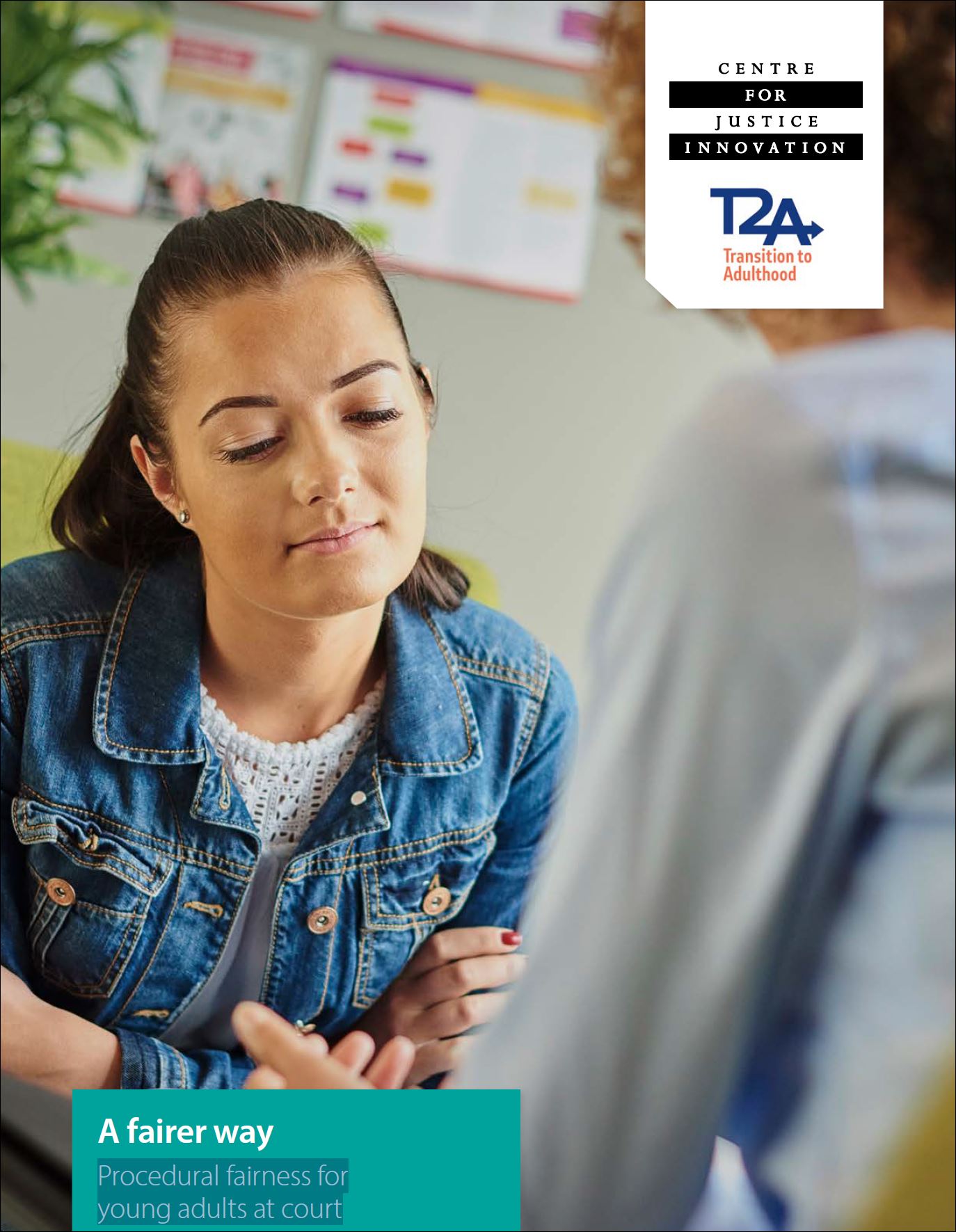PCCs call for new approach
A new report, published yesterday (10 April 2018) by the Centre for Justice Innovation and the Transition to Adulthood Alliance, suggests that a fairer and distinct approach to how the courts deal with young adults could reduce reoffending, meaning fewer victims of crime.
The report, A fairer way: Procedural fairness for young adults at court, sets out a blueprint for a new approach to 18-25 year olds in court, developed over the last two years by criminal justice practitioners in five areas of England and Wales as well as young adults themselves. These areas have worked with the Centre for Justice Innovation to develop a model that could be delivered within current law and at no extra cost to the public.
The adapted court model draws upon scientific international research that has shown young adults’ brain development and maturity makes them a group distinct from both children and from fully mature adults. The proposed changes are based on ‘procedural fairness’ evidence that suggests a more understandable and fairer court process is likely to increase young adults’ compliance with court orders and reduce young adults’ likelihood of committing further offences.
Evidence for a fairer way
In England and Wales, we need to do better at reducing reoffending among young adults aged 18 to 25. Not only are they over-represented in our justice system, taking up a disproportionate amount of resources, but they are often also continuing to offend, with 75% of young adults released from prison being reconvicted within two years and those serving community sentences having the highest breach rates of any adult age group on such sentences.
Explanations behind the over-representation of young adults in these figures include the realities of brain development in maturation, higher levels of neuro-disabilities, relative propensity of young adult offenders to have experienced trauma, changes in social and economic contexts and criminal justice contact that introduces barriers to the natural desistance process.
Procedural fairness is a cost effective intervention that has been shown to reduce reoffending in a number of jurisdictions. Procedural fairness research has consistently shown that when people feel they have been treated fairly by an institution— when they understand what to expect and what is going on and feel listened to and respected, even when decisions go against them— they are more likely to obey its decisions. In the context of offending, this means less crime and fewer victims.

Designing a fairer way
Recognising the imperative to develop new ways of responding to young adult offending, a number of countries have already made a start in treating young adults as a distinct population. There has been little change in England and Wales but CJI and T2A ran pilots in 5 areas. The pilots were based on the principles that it should respond to local need, involve young adults and their families, hear from victims, use evidence to inform developments and share learning as they progressed.
The young people who shared their experiences of magistrates’ court in the pilots described positive experiences, negative experiences and many suggestions for how they felt the process could be improved. But while few talked about dissatisfaction with the sentences they received, all highlighted the importance of understanding the process more clearly, their wish to feel they were treated with respect, and their desire to have a meaningful voice.
The result of the work across the five sites is a recommended model that could be tested and evaluated against its aims. In this model, all young adults aged 18 to 24 at date of charge being prosecuted either through the Crown Prosecution Service or National Probation Service (for breaching existing orders) and scheduled to appear at magistrates’ court would be eligible, regardless of anticipated plea. Exceptions would be made for some cases such as those on remand or in existing specialist courts. The model includes the following core features:
- Providing better information to young adults before attending court;
- Grouping young adults’ hearings into a nominated sitting each week, using an existing Transforming Summary Justice court sitting and in line with existing timescales;
- Holding a pre-court meeting on the nominated day to identify any communication needs, reports to be prepared, and those known to be unrepresented;
- Preparing young adults for the opportunity for direct engagement with the bench;
- Ensuring timely probation reports are completed that take into account maturity in line with the current probation instruction;
- Enhancing engagement during the hearing itself through such means as having practitioners in the room with an understanding of young adults’ specific needs, checking young people’s understanding more effectively, explaining the roles of those in the court room where appropriate and giving young adults an opportunity for direct engagement with the bench;
- Following up after hearings to check understanding and next steps; and
- Supporting voluntary take-up of community services that are available locally to tackle wider needs that may be contributing to offending behaviour.
Delivering a fairer way
In recognition of the fact that good implementation is a prerequisite for effective delivery, the sites also identified what would be needed to test the model. This involves a ten step plan covering:
- Convening the right people;
- Securing senior sign-off;
- Agreeing timescales;
- Producing a local protocol;
- Determining the quality assurance process;
- Developing a local communications plan and briefing arrangements;
- Producing localised information for young people;
- Briefing all relevant partners;
- Beginning the adapted issuing process; and
- Holding the first young adult court sitting.
You can find supporting resources in the report.








